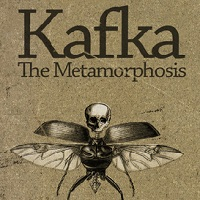 How about spending that well-deserved personal time with a good book such as Franz Kafka‘s most popular novel, Metamorphosis.
How about spending that well-deserved personal time with a good book such as Franz Kafka‘s most popular novel, Metamorphosis.
First published in 1915, the novella was considered one of the most supreme works of short fiction; and until now, this canonical piece is still widely studied in universities worldwide.
Contemporary critics and academics still consider Kafka as one of the best writers in the 20th century. The term “Kafkaesque”, which means surreal distortion or menacing complexity, has been formed after the German-language author.
Metamorphosis revolves around Gregor Samsa‘s extraordinary physiological change – his transformation into a giant insect.
The book, divided into three parts, shows Gregor’s struggle to reconcile with his humanity. It also showed the consequences he must handle in relation to his family’s changing dynamics.
Kafka’s style was precise and straightforward. It stresses about the absurdity of life (how the wildly irrational transformation operates in a chaotic universe) and the limits of sympathy. He also focuses on the violent tensions between father and son.
I personally liked how the author’s hero is isolated. Kafka’s Euro-alienation is fluttered with existential drama and uncanny wit.
Simply put, Metamorphosis suggests that instead of working like a bug for other people (like in the case of Gregor Samsa), a person should work for himself with pride and dignity.
Related Links:
Metamorphosis on Project Gutenberg
Metamorphosis on Google books
Metamorphosis on Archive.org


